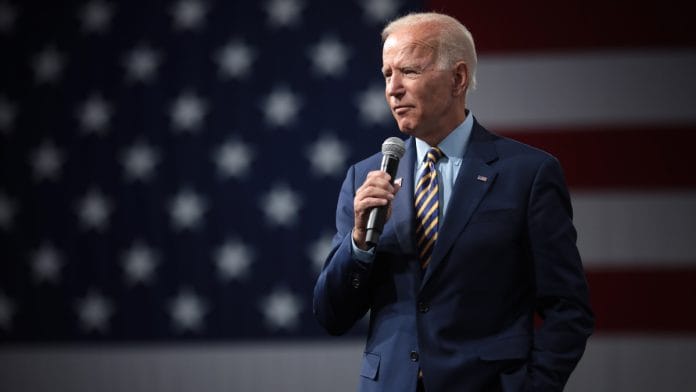The vandals who defaced the seat of American power last week appear to have done grave damage, as the New York Times put it, to “America’s proud claim to be the leader of the free world, and to the hope and support its voice offered to people fighting for democracy.”
But this noble idea of America, especially cherished among older, predominantly white Americans, always had a tenuous relation to facts. President-elect Joe Biden now has the chance to discard a long-busted fantasy and build a new reality-based relationship between the United States and the world.
Certainly, it seems too late to lament, especially after the catastrophically bungled U.S. response to the pandemic, that “no one in the world is likely to see, respect, fear or depend on us in the same way again” (in the words last week of Richard Haass, president of the Council on Foreign Relations).
Moreover, the claim, advanced by the New York Times, that “the United States has stood as the standard of democracy and freedom since the last two world wars,” has rarely been verified by the lived experience of a vast majority of the world’s population.
Even as a child in India in the 1970s I knew of how the U.S. supported military-ruled Pakistan against the largest non-Western democracy. I later discovered that several generations of Pakistanis fighting for democracy profoundly distrusted American leaders for their sponsorship of religious fanatics and military despots. People across Asia, Africa and Latin America have their own grievances.
Americans mourning their shattered delusions may not see this yet, but the defacers of the Capitol have inadvertently offered an incoming American president a rare opportunity — not only to rebuild America’s relationship with the world on a more honest foundation but also genuinely to advance the cause of democracy worldwide.
Once inaugurated, Joe Biden has promised to convene a “summit of democracies.” He can make a better start by creatively bridging the abyss between the way many Americans see themselves and how others see America.
He should realize that the self-flattery of American elites is, ultimately, counter-productive outside the U.S. The ruling classes of Russia and China receive proclamations of American moral leadership as a godsend — proofs of arrogance and hypocrisy that they can use to reinforce their own legitimacy. Many in smaller countries, listening to American lectures about human rights, most recently from Secretary of State Mike Pompeo, have become prone to wonder if the “China model” might serve them better.
No doubt, many Americans promoting democracy and human rights abroad were and are well-intentioned. But, as Graham Greene famously wrote in “The Quiet American,” his prescient novel about a blunderingly righteous American in Vietnam, “I never knew a man who had better motives for all the trouble he caused.”
Biden could break with an accursed legacy of democracy-promotion abroad by emphasizing how much democracy needs to be promoted at home. The change in rhetoric won’t be easy. Biden, like many older Americans, developed his worldview in an age when enemies of the free world were always located in remote countries and continents.
But four years of Donald Trump have clarified, before a stunned international audience, how the real enemy of freedom and democracy was always lurking inside the U.S. homeland, in extreme concentrations of money and power and the immiseration of the working classes, not to mention militarized police and intense social divisions.
Biden could use this moment of clarity to rebuild America’s moral authority on a broader and more solid basis. He could stress America’s own fraught battle for democracy — an ideal that is yet to be realized by many Americans. Such grounded realism is more likely to arouse empathy and solidarity among equally embattled people around the world than another airy “summit” presided over by a U.S. president.
It is no accident that the most venerated American outside the U.S. — Martin Luther King Jr. — consistently pursued American ideals without self-regard and by reckoning frankly with the great difficulties in his path.
At the same time, Biden should not underestimate his country’s resources. Raphael Warnock’s magnificent victory in the Georgia Senate election suggests a deep well-spring of political energy in the U.S. today.
An inspired president could link this renewed American struggle for justice and dignity with the struggles of ordinary peoples around the world, whether Kashmiris besieged by ethnic-religious supremacists, or Hong Kong citizens ranged against an authoritarian regime.
This is, of course, a very tall order. Faith in American superiority, however tarnished, sustains a vast intellectual-industrial complex of periodicals, foundations and think tanks; and it endows American leaders with moral glamor.
Biden himself may be too imbued with American exceptionalism to break from it. But there should be no doubt that Trump’s last kick to a hollowed-out ideology of American elites is a great parting gift to his successor. – Bloomberg
Also read: Don’t laugh at US so soon, it has survived its populist moment far better than rest of us






